Students back at uni - but with masks and no bars
- Published
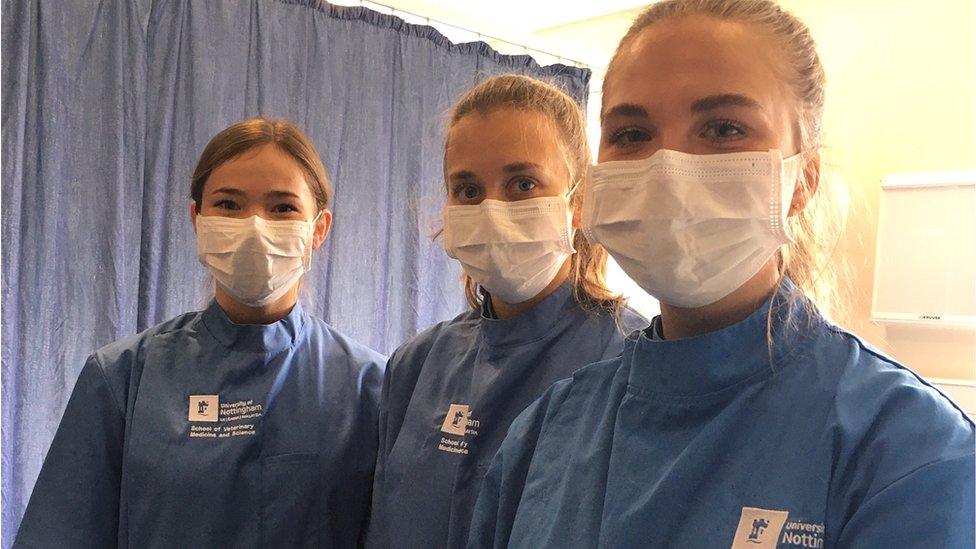
The trainee vets say they're relieved to be back with their friends again after the long lockdown
The first students are beginning to return for face-to-face teaching on UK university campuses - with a new term of compulsory masks and closed bars.
Most students won't begin until the autumn, but veterinary students are now back at the University of Nottingham.
They are the pioneers for how campuses across the UK could look as they reopen after the Covid-19 lockdown.
"The social experience will be more limited, but these are unprecedented times," says registrar Paul Greatrix.
The first cohort going back in Nottingham are 150 trainee vets, some of whom will see a great deal of each other - as the university adopts the "bubble" system in which small groups will live as well as study together.
The university is calling it "households" rather than "bubbles", but it is the same principle of restricting the spread of infection by keeping people in small groups which are kept separate from each other.
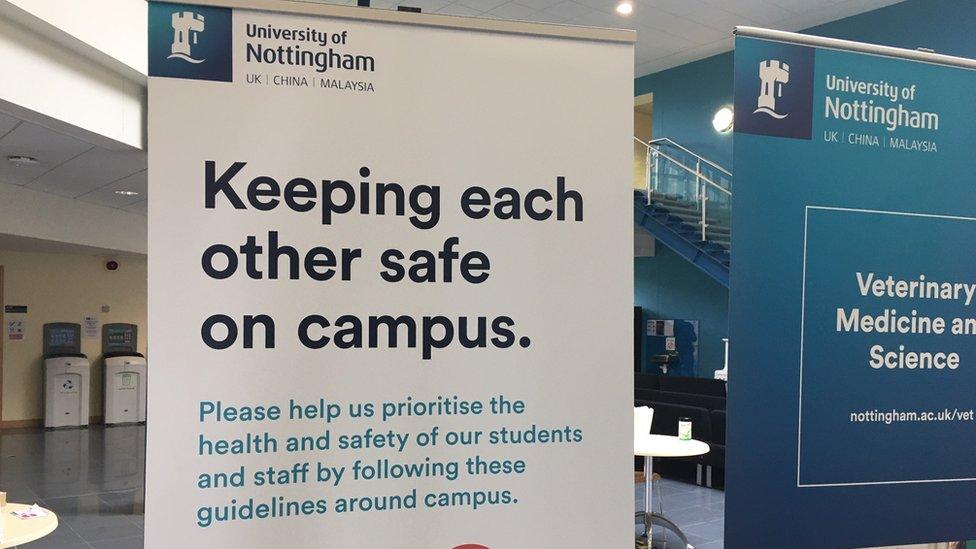
University buildings have highly visible messages reminding students about safety messages
Within these households of three to 10 students there will be no need for social distancing or wearing masks, but where different households meet the students will have to stay apart.
"Safety has to be the priority," says Dr Greatrix.
The buildings are mapped out with one-way systems and hand sanitising stations and masks have to be worn, including in lessons, by staff and students.
Lectures will be online and there will be in-person teaching for small groups, which is essential for a practical subject such as veterinary science.
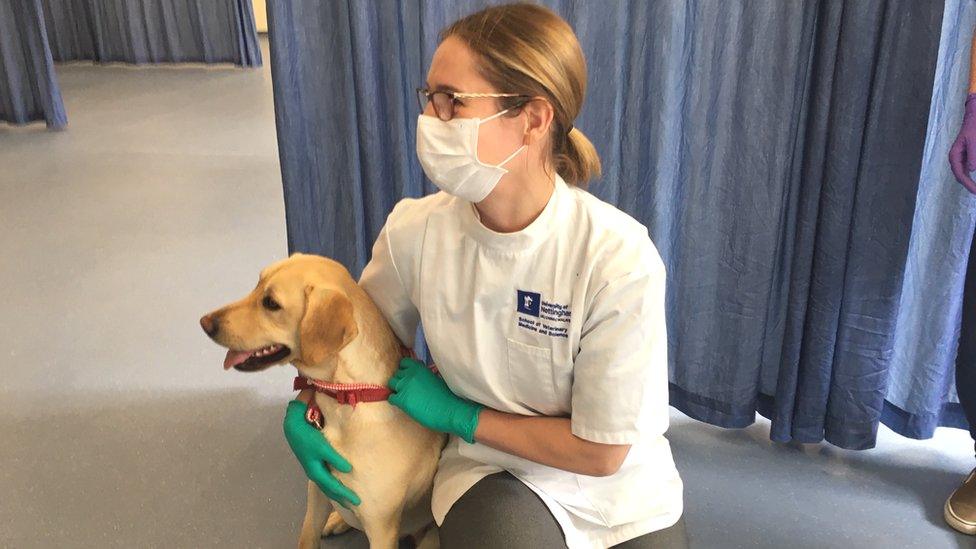
Sarah Cripps says it was impossible to teach such a practical subject online
The student bars are closed and there are posters up for a pizza night that's going to be an online event.
"We can't emulate an all-night club experience through a Zoom chat," says Dr Greatrix.
But he says the university is doing everything it can to create a sense of involvement.
The students at Nottingham just seem very glad to be back and seeing friends, after months of being cooped up at home and having to study online.
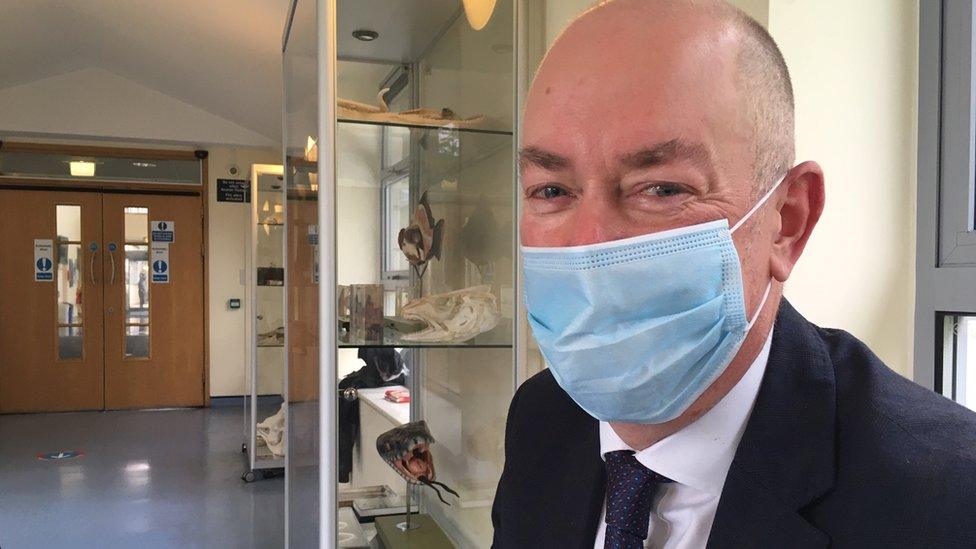
Registrar Paul Greatrix says it is a huge logistical operation to get ready for 40,000 students and staff in the autumn
They don't seem particularly daunted by the safety restrictions or that much of the socialising will be online.
"We were desperate to come back," says Amy Thornton. "It will be different, but it was time to come back."
She will be living in a bubble with five other trainee vets - and isn't worried about the new arrangements or seeing too much of a small number of people.
"It's just nice to see people again," says Emily Howell. "We're going to have to get on with it."
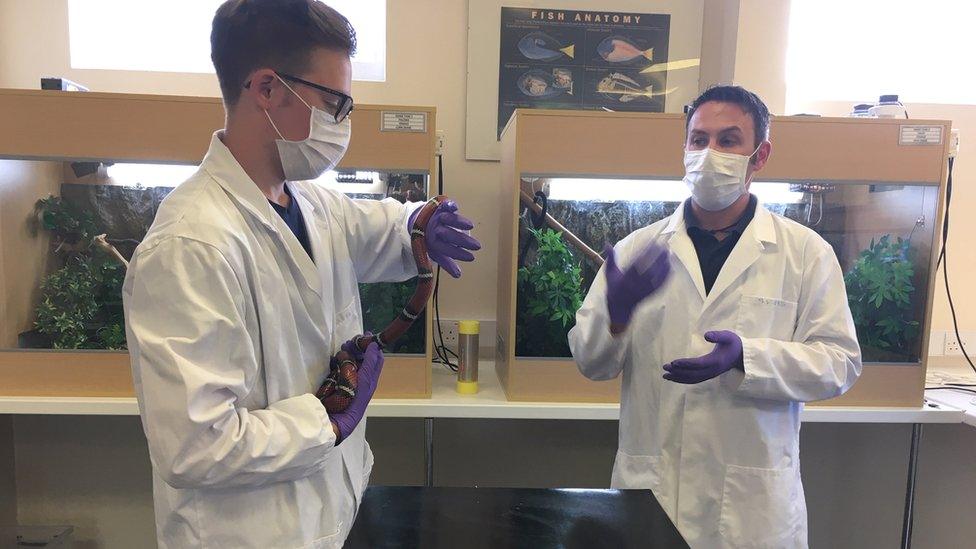
Tom handles a milk snake as part of the training in looking after reptiles
The online lectures are useful, she says, because you can rewind them. "But I can't wait to do practicals."
Her flatmate, Lewis Ashman, says he has no concerns about any risks from going on to the campus. "It's safe," he says.
Tom, getting his first chance to hold a snake and a bearded dragon called Barbie, says it's "great to be back".
The students don't mind the masks, but they're finding that dogs used in training don't like them - and it can set them off barking.
It's also a relief to be back teaching in person rather than online, says clinical assistant professor, Sarah Cripps.
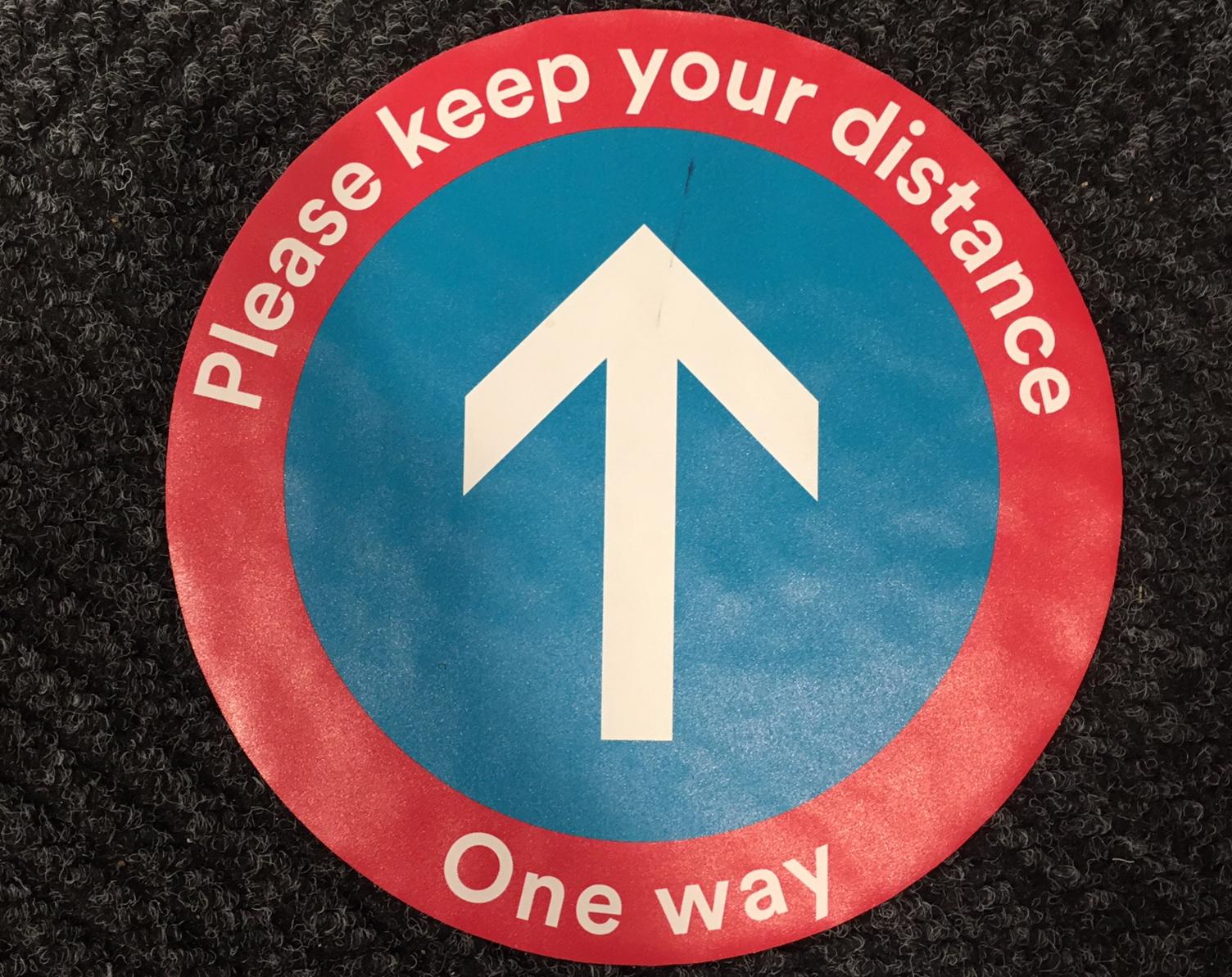
Nottingham has a one-way system operating across its buildings
Universities didn't close, but went online - and the pandemic has shown the limitations of remote teaching, and how much is missed when students and teachers are not there together in person.
And in the case of a practical subject such as learning to be a vet, which is all about handling, it's impossible to switch completely online.
Dr Greatrix says reopening for the rest of Nottingham's 40,000 students and staff will be one of the biggest projects the university has ever faced.
There will be staggered arrival times in September to reduce contacts between students, in what is like a small town turning up.
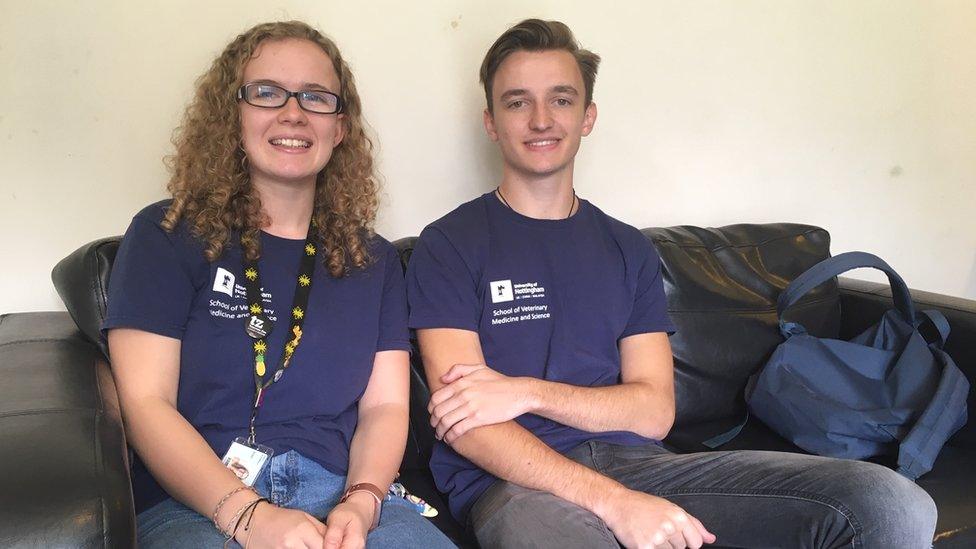
Emily Howell and Lewis Ashman do not have any worries about the safety of being on campus
And there are plans if there are further Covid-19 outbreaks, either in halls of residence or in parts of the city where students are living.
There is a strong message of reassurance about safety - not least to overseas students, particularly from China, who have been doubtful of how well the pandemic has been handled in the UK.
Dr Greatrix says he will be pleased if more than 50% of overseas students turn up as planned - with many universities fearing a financial hit from cancellations.
Universities can introduce safety rules, but students are adults and he recognises there is no way of preventing people in separate bubbles from meeting away from the university - such as going to a local pub.
And it's not possible to put the same safety controls on students living in private accommodation.
"We'll try to regularly remind students about a sense of responsibility," said Dr Greatrix.